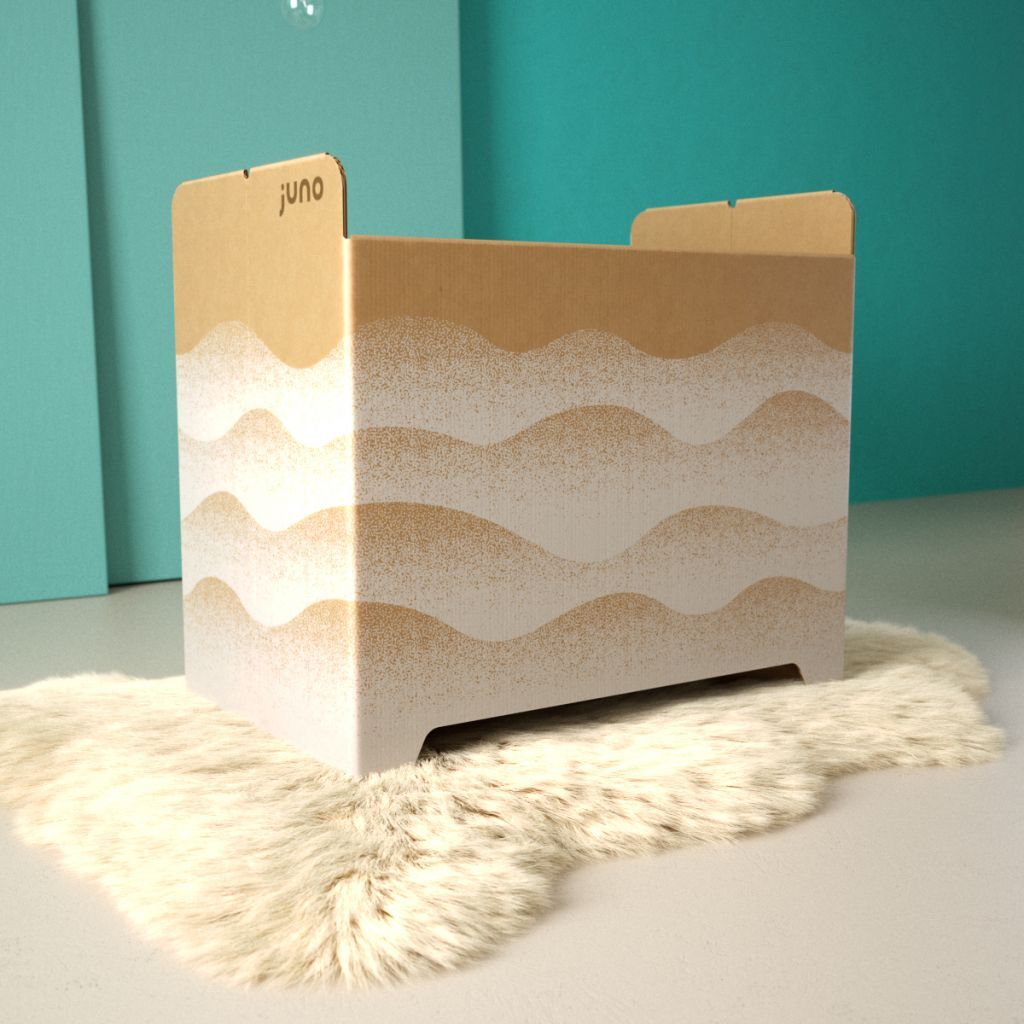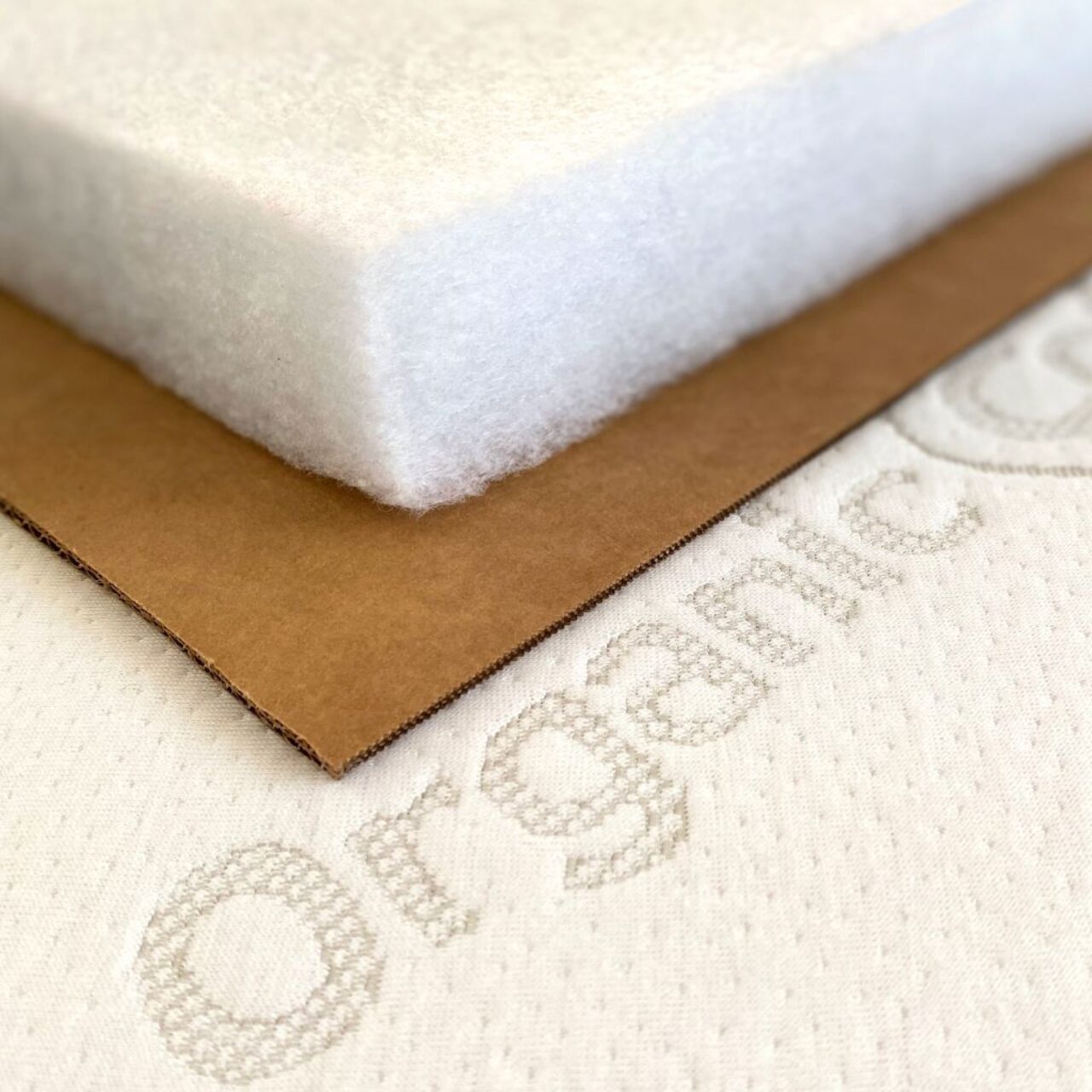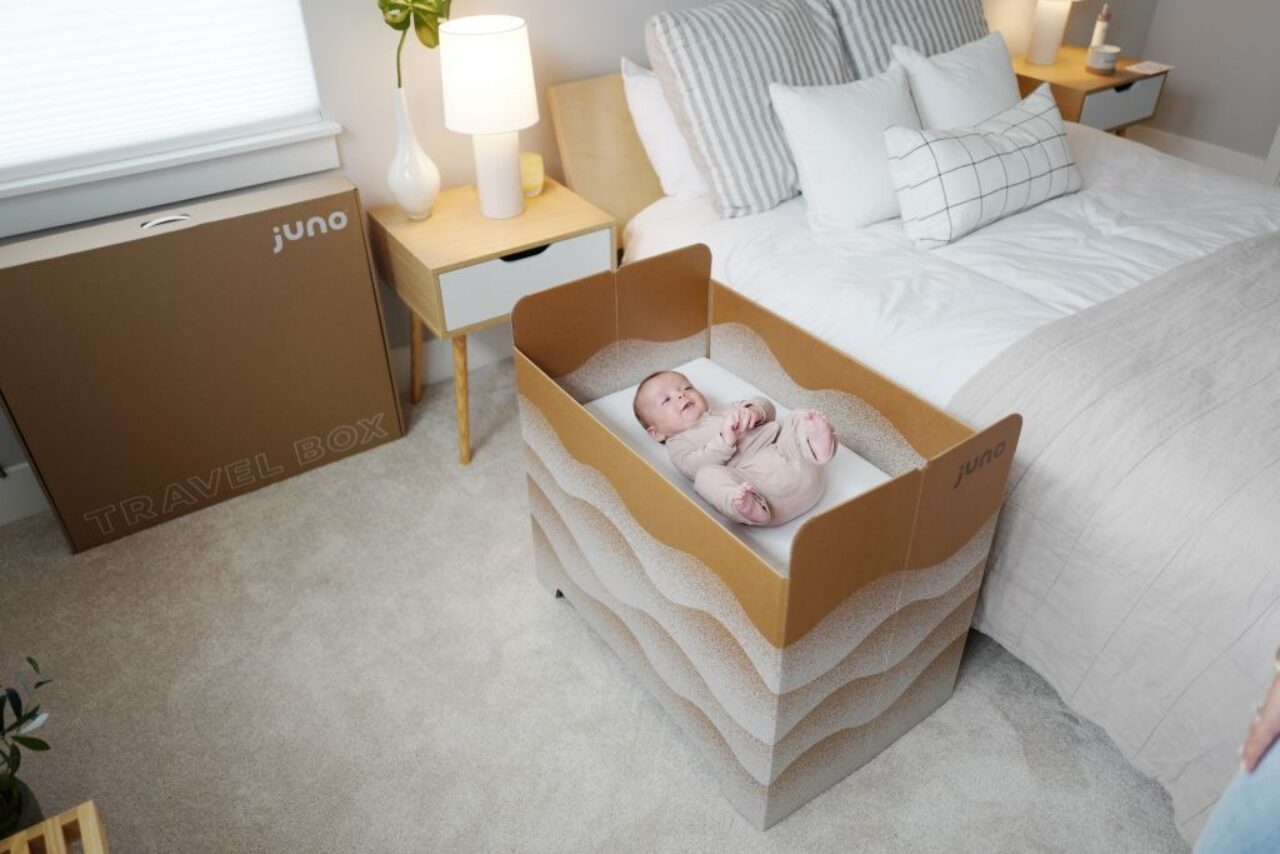Juno Bassinet Takes the Parenting World by Storm

The Juno Bassinet. (Image courtesy Herman Chan and Juno)
Posted on | Updated
Juno, founded by alum Herman Chan, has revolutionized the standard bassinet with an award-winning product that is healthy, sustainable and affordable.
Herman Chan (BDes 2005) and Thomas Duester co-founded Juno together. Based in Seattle, Juno envisions a world in which every parent and child is surrounded by well-designed products that are natural, simple to use and good for the planet. The Juno Bassinet was formed out of Herman’s frustration when he and his wife tried to find a sleeping solution for their newborn son that was not only healthy, but also affordable and portable.
“Our mission was to develop the healthiest and most sustainable sleeping environment for newborns at an affordable price,” said Herman Chan, co-founder of Juno. “No parent should ever have to sacrifice health and safety for affordability.”
The Juno Bassinet features a pop-up design made from lightweight natural and renewable materials, allowing parents to set up the bassinet in 30 seconds or less. The frame simply pops into shape and the sleeping surface and pad is placed within. This unique design allows the bassinet to be folded flat for transport with the included travel box or stored away.

The Juno Bassinet. (Image courtesy Herman Chan and Juno)
The materials of the Juno Bassinet are fully recyclable, being constructed from premium-grade, sustainably sourced and high-strength paperboard. Even before the Juno Bassinet was launched, it won the prestigious iF Design Award, one of the most important design prizes in the world, as well as recently scooping up the IDSA IDEA Bronze Award.
“The award reflects our ‘no compromise’ commitment to quality as well as how we used smart design to make the bassinet natural for babies, simple for parents and awesome for the planet,” said Thomas Duester, co-founder.
The Juno Bassinet is the result of years of collaboration between Herman and Thomas. The pair are industrial designers by training whose work has been behind some of the world’s most interesting, important and sustainable products, from Philips’ first consumer LED light bulb to Amazon Go, the world’s first cashier-less shopping experience, and dozens of others in between. We chatted with Herman about how he and Thomas became co-founders of Juno.
“We were the first industrial design team that was formed to help invent Amazon Go. After launching the world’s first cashier-less store, we decided to leave Amazon and form not one, but two companies,” explained Herman.
“Formfuture is a design consultancy that leverages our experience in innovation to help clients solve real human needs by bridging design, business, and technology together. While working for clients such as Seattle Children’s Hospital and developing the future of autonomous pharmacy for Omnicell at formfuture, we used whatever spare time we had to develop the Juno Bassinet over the course of the last 3 years.”
As an alum of ECU, Herman shared how his experience at university helped propel his career forward.
“Emily Carr and its design program gave me the foundation I needed with industrial design to focus on solving real problems,” said Herman. “The breadth of experience from soft good design to material innovations with Christian Blyt came in handy through my experience at TEAGUE, Amazon, and my two start-up companies.”

The Juno Bassinet. (Image courtesy Herman Chan and Juno)
“I remember that, while at Amazon, I found myself excited to flex my skills when asked to develop not only all the tech-enabled devices in the store, but to tackle how we could innovate with apparel, packaging, and help our associates with their pain points.”
Herman is also involved with the IDSA Seattle Chapter and his goal as a board member is to create a more inclusive community in the Pacific Northwest. “Covid has challenged physical events but it has also led to broader online engagement which has broken down borders,” explained Herman. “For example, ECU alum and Vancouverite Katie Mah (BDes 2014) spoke about inclusive design for her work at Arc’Teryx.”
“If you share the same passion and want to foster building a stronger design community in the PNW, please connect with me,” said Herman. “No IDSA membership required or any need for you to be in Seattle.”
The Juno Bassinet is currently only certified to be on sale in the US.